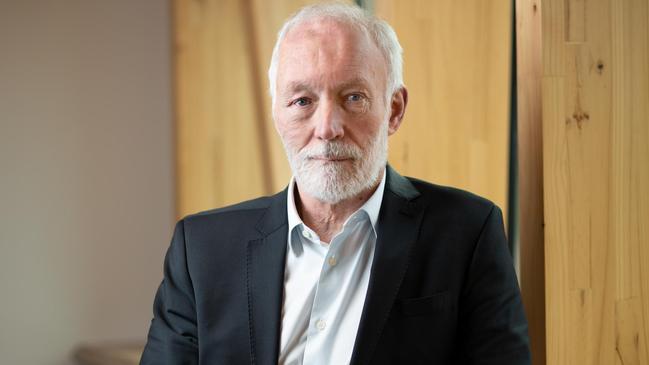A blueprint to inspire and shape a national agreement

We are at a watershed. Mental illness has been seriously neglected within our society and health systems.
We have seen many false dawns. Only 25 years ago in Victoria, we uprooted mental healthcare from the 19th-century asylums and entrusted it to the “mainstream” healthcare system with the solemn promise that new community mental health services would mean people could mostly avoid long hospital stays.
This was a promise broken not just in Victoria but all around Australia.
And it has resulted in what the Victorian Premier has called a “broken system”, the first politician in the world honest enough to openly admit this inexcusable but worldwide policy failure.
So it was timely to hear the Premier and Leader of the Opposition not only apologise to Victorians but admit they felt ashamed.
That is leadership. And so appropriate given that this failure has led to a profound human toll of many thousands of preventable deaths, blighted lives and immeasurable suffering.
The personal stories of this suffering bring to life the damning statistics that show that the system has failed to provide compassionate and expert care to two out of three people who needed it, and locked out nearly 100,000 Victorians every year, contributing to the deaths of the 698 people who died from suicide in Victoria in 2019.
In the 1990s, the old mental hospital system was in its death throes and a new one was born. However, the child born at that time had neglectful parents.
Today’s parents have decided to give the child a second chance. Victorians will be deeply grateful to the Premier and his government for realising the only way to create the authorising environment for the scale of reform required was a royal commission.
Victoria has responded magnificently to this opportunity.
The commission has produced a report of unique and unprecedented value. I’ve seen more than 50 such reports gather dust. Not this time.
Daniel Andrews stressed that care must be early and local. My colleagues and I at Orygen have spent most of the past 30 years creating and exporting evidence-based models of early intervention and youth mental health.
Early intervention saves lives and futures. In the treatment of cancer and medical illness, we would not dream of turning away two out of three people, dismissing them with the notion that their illness was not serious enough to deserve care.
So it was a real breakthrough to see the value of early intervention boldly asserted in recommendation one of the report.
Intervening early means a special focus on young people who bear the major burden of onset for mental disorders, and who have been most heavily impacted by COVID.
Yet despite successful innovations such as headspace, we still turn away even more young people than we do adults: three out of four. So one of the most transformational recommendations of the royal commission is to shift the upper boundary for specialist youth mental care to the 26th birthday to align with headspace and a raft of scientific evidence.
Youth mental health must become the strongest part of the system. Investment during this stage of life in early intervention is the best buy in mental healthcare, will pay for itself and steadily shrink the flow of people into longer-term care.
The principal focus of the commission has quite rightly been on lived experience. It has recognised the centre of gravity for mental healthcare must be in the community, and in local communities as far as possible.
Mental healthcare will be empowered and protected within the health system for the first time through major changes to governance, financing and transparency.
The establishment of eight regional boards will shift the centre of gravity away from large hospitals, which inevitably struggle to value and support community mental healthcare. The “missing middle” will no longer be marooned in no man’s land.
Reform is hard and there are always those who have something to lose who will resist it.
However, I have never before witnessed an authorising environment so strong as that created by this government.
On an equally optimistic note, I met with the Prime Minister last week and believe the federal government is on the same wavelength and willing to co-invest collaboratively with Victoria to bring to life a blueprint that can inspire and shape a national agreement on mental healthcare by the end of this year.
One final ingredient is scientific research and innovation. We desperately need to invest in discovery-based research and clinical trials as in all other areas of healthcare. The most dramatic recent example is vaccine development. We need to find better and safer medications to cure and relieve mental illness.
Yes I mentioned the “C” word!
The royal commission has completed its work.
It is now in the government’s hands and our own to unleash the transformation to a mentally healthy Victoria.
Patrick McGorry is a professor of youth mental health at the University of Melbourne





Yesterday was a historic day for Victoria, and indeed for the rest of Australia.